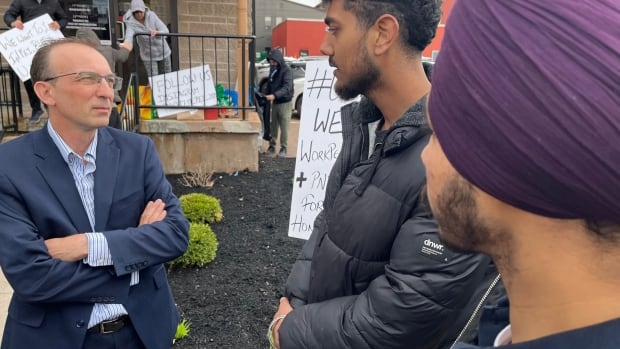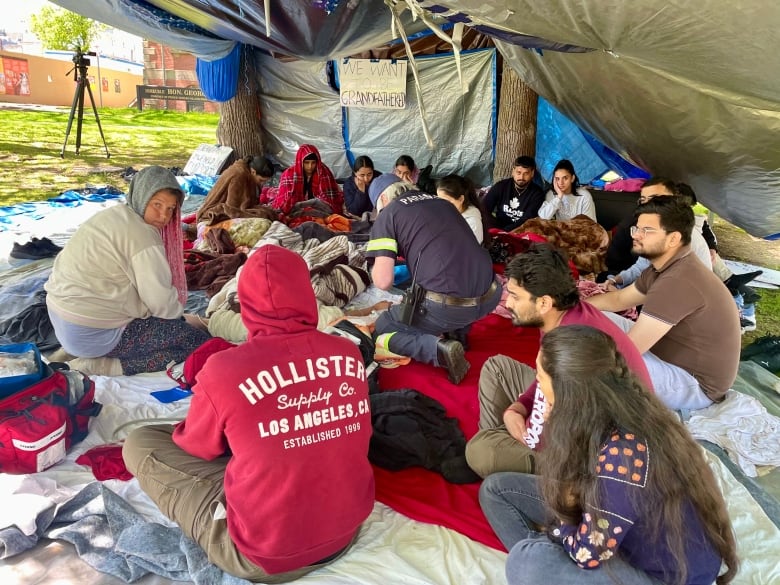
Foreign workers protesting the P.E.I. government’s recent immigration policy changes say they’ve agreed to ‘pause’ their no-liquid hunger strike after meeting with the province’s top immigration official.
CBC News has reached out to the provincial government for comment on the development.
The group has been protesting in Charlottetown since May 9, and many of them began a hunger strike just over one week ago on the lawn in front of the George Coles Building, where the P.E.I. Legislature sits.
On Tuesday of this week, some of the protesters also stopped drinking liquids to draw attention to their cause.
The group is made up of prospective immigrants, and they say their lives have been turned upside down by changes the province made to its immigration policy in February. Those changes make it much harder for people working in sales and service to be nominated for permanent residency by the province — including people who are already working on the Island.

Most of the protesters are recent graduates from Canadian universities or colleges.
As international students, they were given open work permits for three years, and came to work on P.E.I. because of its reputation as a relatively easy place from which to earn permanent residency. That’s the first step toward becoming a Canadian citizen.
For the past few weeks, protesters have been voicing their concerns about how the changes to P.E.I.’s provincial nominee program could leave many without a path to permanent residency. CBC reporter Steve Bruce breaks down who is protesting and how the province’s immigration policy has changed.
In February, as it released a new population strategy in the face of rising demand for housing and health care, the P.E.I. government said it would severely cut back on the number of nominations in sales and service, from 855 last year to about 215 this year.
Instead, the province plans to give preference to people with experience in fields related to health care and construction.
About seven of the protesters were still on the no-liquid hunger strike as of Friday morning, a spokesperson told CBC News early in the day. Some had required medical attention earlier in the week, while protest organizers asked others to voluntarily end their strike due to health concerns.
More to come.
